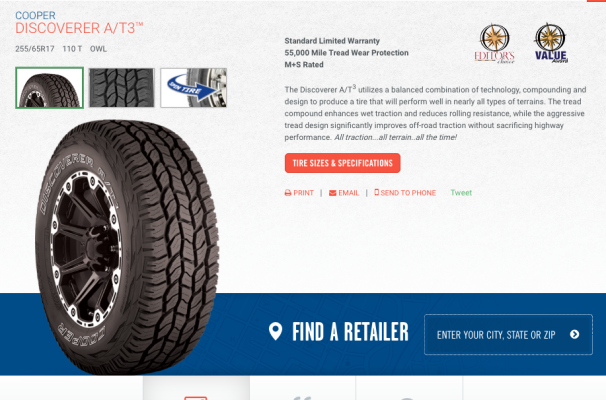Here's a weird one. I'll try to be coherent but just off the phone with dealer. I ordered a new diesel longbed Colorado and was very excited about putting the 2011 Eagle camper on. When I ordered the truck they agreed to swap out tires for Cooper AT/3 255 65 17. The Cooper website said they fit as did three tire places. I got a call from the dealer today saying my new truck was ready but that they have to keep the passenger tires on the truck.... that's what?.... They said there is one one ....just one tire that can be on the truck. Nothing else. All over the world...all people have to use the same tire. They claim none of the computer electronics will work if the diameter of the tire is slightly changed (yet their spare is 16"?). Has anyone heard of such a thing? One tire the world over? I went to this site
http://us.coopertire.com/customer-care/tire-navigator.aspx?searchType=vehicle&year=2016&make=Chevrolet%20Trucks&model=Colorado%20&option=%20LT&tab=0
Does anyone have a 2016 Colorado and what tires are on yours?!
http://us.coopertire.com/customer-care/tire-navigator.aspx?searchType=vehicle&year=2016&make=Chevrolet%20Trucks&model=Colorado%20&option=%20LT&tab=0
Does anyone have a 2016 Colorado and what tires are on yours?!

